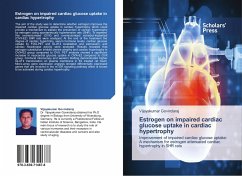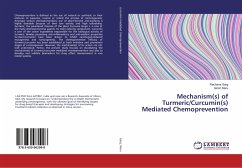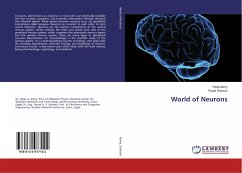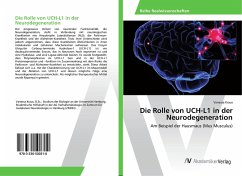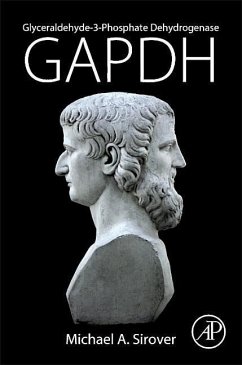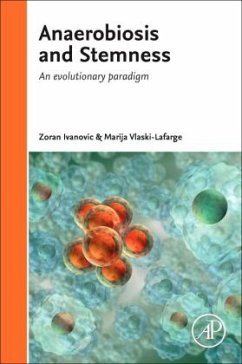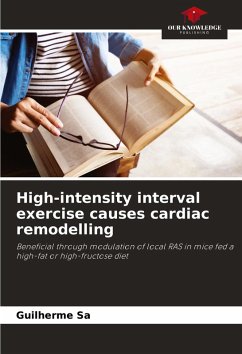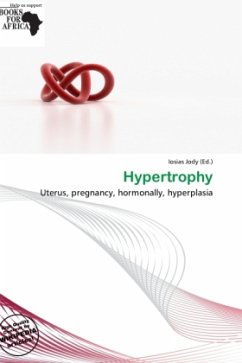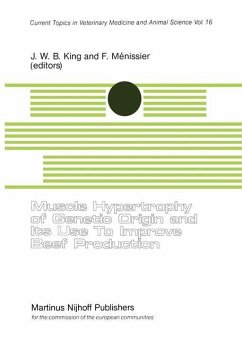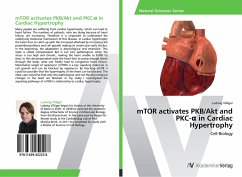
mTOR activates PKB/Akt and PKC-¿ in Cardiac Hypertrophy
Cell-Biology
Versandkostenfrei!
Versandfertig in 6-10 Tagen
20,99 €
inkl. MwSt.

PAYBACK Punkte
10 °P sammeln!
Many people are suffering from cardiac hypertrophy, which can lead to heart failure. The numbers of patients, who are dying because of heart failure, are increasing. Therefore it is important to understand the underlying molecular mechanism of this disease. In cardiac hypertrophy the heart tries to catch up with the increased afterload by increasing the proteinbiosynthesis and cell growth making its ventricular walls thicker. In the beginning, the adaptation is physiological and reversible. This state is called compensated. But it can turn pathological, when the stress is too high and chronic,...
Many people are suffering from cardiac hypertrophy, which can lead to heart failure. The numbers of patients, who are dying because of heart failure, are increasing. Therefore it is important to understand the underlying molecular mechanism of this disease. In cardiac hypertrophy the heart tries to catch up with the increased afterload by increasing the proteinbiosynthesis and cell growth making its ventricular walls thicker. In the beginning, the adaptation is physiological and reversible. This state is called compensated. But it can turn pathological, when the stress is too high and chronic, making the heart unable to fulfill its duty. In this decompensated state the heart fails to pump enough blood through the body, what can finally lead to congestive heart failure. Mammalian target of rapamycin (mTOR) is a key signaling molecule in cell growth and can be blocked by rapamycin. By blocking mTOR it could be possible that the hypertrophy of the heart can be blocked. The ideal case would be that only the pathological and not the physiological changes in the heart are blocked. In my study I investigated the signaling pathways of mTOR in relationship to cardiac hypertrophy.



